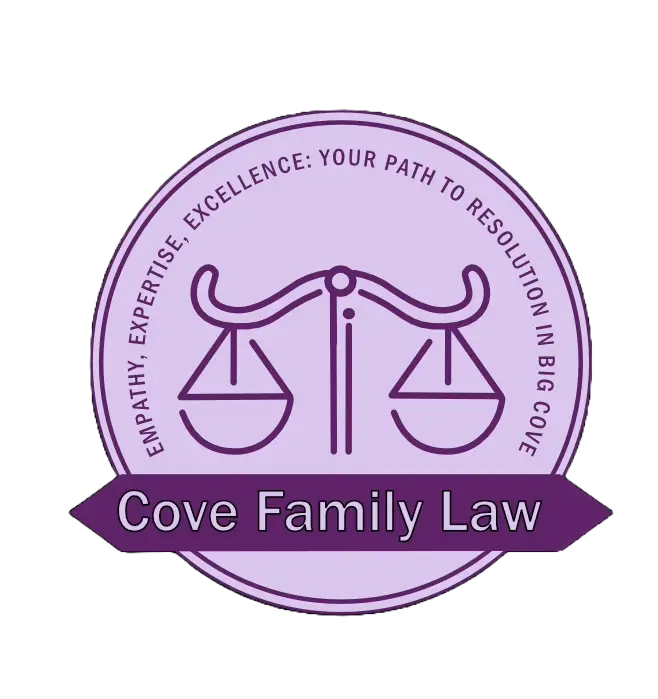As a family law attorney in Huntsville, I’ve guided numerous parents through the complexities of child custody laws in Alabama. Whether you’re facing divorce, separation, or need to modify an existing custody arrangement, understanding these laws is crucial for protecting your rights and ensuring your children’s well-being.
Types of Custody in Alabama
Alabama recognizes two main types of custody:
1. Legal Custody: This involves the right and responsibility to make important decisions about your child’s upbringing. These decisions typically include:
– Educational choices (e.g., school selection, tutoring, special education services)
– Healthcare decisions (including medical, dental, and mental health treatment)
– Religious instruction and participation
– Extracurricular activities
2. Physical Custody: This refers to where the child primarily resides and which parent is responsible for the day-to-day care of the child.
Both legal and physical custody can be awarded in two ways:
– Joint Custody: Both parents share responsibilities and rights.
– Sole Custody: One parent is granted primary responsibility and authority, though the other parent generally maintains some level of visitation rights.
It’s important to note that joint legal custody doesn’t mean equal physical custody. Parents can share decision-making rights while having an uneven split of physical custody time.
Best Interests of the Child Standard
In Alabama, as in most states, the overarching principle in custody decisions is the “best interests of the child.” Courts consider various factors when determining what arrangement will best serve the child’s needs, including:
– The age of the child
– Each parent’s physical and mental health
– The emotional ties between each parent and the child
– The ability of each parent to provide for the child’s needs (emotional, social, moral, material, and educational)
– The child’s adjustment to home, school, and community
– Any history of domestic violence, child abuse, or substance abuse
– The willingness of each parent to foster a relationship between the child and the other parent
– The character and behavior of any other people who may be present in each parent’s home
Joint Custody Presumption
Alabama law presumes that joint custody is in the best interests of the child, though the application can vary greatly from judge to judge. This presumption can be rebutted with evidence showing that joint custody would not serve the child’s best interests.
The law encourages both parents to share in the rights and responsibilities of child-rearing, even after divorce or separation. This doesn’t necessarily mean a 50/50 split of physical custody time, but rather that both parents have significant contact with the child.
Parenting Plans
When parents can agree on custody arrangements, they’re encouraged to submit a detailed parenting plan to the court for approval. A comprehensive parenting plan typically includes the following:
– A custody and visitation schedule, including holidays and school breaks
– Provisions for transportation and exchanges of the child
– Guidelines for communication between parents and with the child
– Decision-making procedures for major issues
– Methods for resolving disputes
Even if parents agree on a plan, the court must still approve it to ensure it serves the child’s best interests. Most courts have standard orders or schedules that serve as a good starting point.
Modifying Custody Orders
Life changes and custody arrangements sometimes need to be adjusted. In Alabama, a parent can petition for a modification of a custody order if there has been a material change in circumstances that affects the child’s best interests. Examples might include:
– A parent’s relocation
– Significant changes in work schedules or financial situations
– Concerns about the child’s safety or well-being in the current arrangement
– The child’s changing needs as they grow older
The parent seeking modification must demonstrate that the change in circumstances is substantial and ongoing, not just a temporary situation.
Relocation Laws
Alabama has specific laws governing parental relocation. If a custodial parent wants to move with the child, they must provide written notice to the other parent:
– At least 45 days before the proposed move
– By certified mail
– Including specific details about the proposed new residence and the reasons for the move
The non-relocating parent then has 30 days to object to the move. If an objection is filed, the court will hold a hearing to determine if the move is in the child’s best interests. Factors considered include:
– The child’s relationship with both parents and other family members
– The age and developmental stage of the child
– The potential benefits of the move
– The relocating parent’s reasons for the move
– The potential negative impact on the child’s relationship with the non-relocating parent
Enforcing Custody Orders
If one parent violates a custody order, the other parent can file a petition for enforcement with the court. Depending on the severity and frequency of the violations, consequences might include:
– Make-up visitation time
– Modification of the custody order
– Contempt of court charges, which can result in fines or even jail time in extreme cases
Every family situation is unique, and navigating child custody laws can be complex. If you’re dealing with a custody issue in Huntsville or elsewhere in Alabama, consulting with an experienced family law attorney is crucial. A knowledgeable lawyer can help you understand your rights, guide you through the legal process, and advocate for an arrangement that serves your child’s best interests while protecting your parental rights.
Remember, the ultimate goal is to create a stable nurturing environment for your child, maintaining strong relationships with both parents whenever possible. While the legal process can be challenging, keeping your child’s well-being at the forefront will help guide you toward the best possible outcome.


